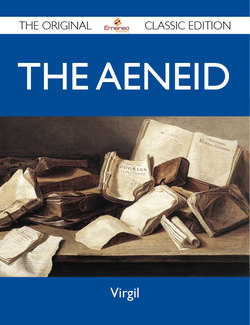Описание книги
Publius Vergilius Maro was commisioned by Caesar Augustus to author a national epic for Rome. The work which Virgil composed for this purpose was the Aeneid. It is an epic poem that tells the story of a minor character from Homers Iliad who leads a rag-tag band from the smouldering ruins of Troy in order to found a New Troy to the west: Rome. <p> It is in the Aeneid, not the Iliad (as most people who have not read the works tend to believe) that we see the spectacle of the Trojan Horse and the famous line I do not trust Greeks bearing gifts. The Iliad ends with the death of Hektor – before the plan of the Trojan Horse is devised by Odysseus. The Odyssey picks up after the sack of Troy. The Aeneid fills in the gaps and narrates the story of the few Trojans who escape the wrath of the Greeks. According to legend, Romulus and Remes (the two brothers who eventually founded the city itself) were descendents of Aeneas. <p> As is usual, Fitzgeralds translation is top notch. The book also contains a useful glossary and postscript which help elucidate the allusions to Hannibal and Cleopatra which the Romans of Virgils day would have picked up right away, but which might be unfamiliar to modern day readers. <p> Read the Aeneid. You will be glad you did, for this is an extraordinary epic.
